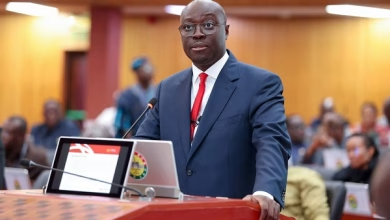Akufo-Addo Orders Police and Military Crackdown on Galamsey Amid Growing Pressure

- Organised Labour has warned of a potential nationwide strike by the end of September
- Regional Security Councils will lead intensified operations
- The Ghana Water Company Limited has reported water supply issues in Cape Coast
President Akufo-Addo has instructed the deployment of both police and military forces to tackle the issue of illegal small-scale mining, known as galamsey, in response to escalating demands for action.
This directive followed a national security meeting focused on evaluating the detrimental effects of galamsey on waterways and the environment.
On Wednesday, Organised Labour issued a stern ultimatum to the government, threatening a nationwide strike by the end of September if substantial measures are not implemented to address the worsening galamsey situation.
Other organizations, including religious leaders, have also expressed similar concerns.
During a media briefing last night, Lands and Natural Resources Minister Samuel Abu Jinapor announced that the President has additionally instructed the decommissioning of equipment used for illegal mining if necessary.
“The Regional Security Councils have been assigned to monitor and assess their respective regions and to initiate operations to enhance enforcement. In the near future, we will see intensified and widespread enforcement actions,” Jinapor said.
He added, “The Ghana Police Service will be the primary force in these operations, but should the situation require, we will involve the Ghana Armed Forces and may take extraordinary measures such as decommissioning illegal mining equipment.”
The renewed focus on galamsey emerged after the Ghana Water Company Limited’s Central Region management revealed potential water supply issues in Cape Coast, Elmina, and nearby areas. They attributed the recent water shortage to insufficient raw water at the Sekyere Hemang Water Treatment Plant, a direct result of galamsey activities.
Environmental groups, civil society organizations, and concerned citizens have expressed growing frustration over the slow progress in combating galamsey, which has led to river contamination, farmland destruction, and severe impacts on livelihoods across Ghana.






